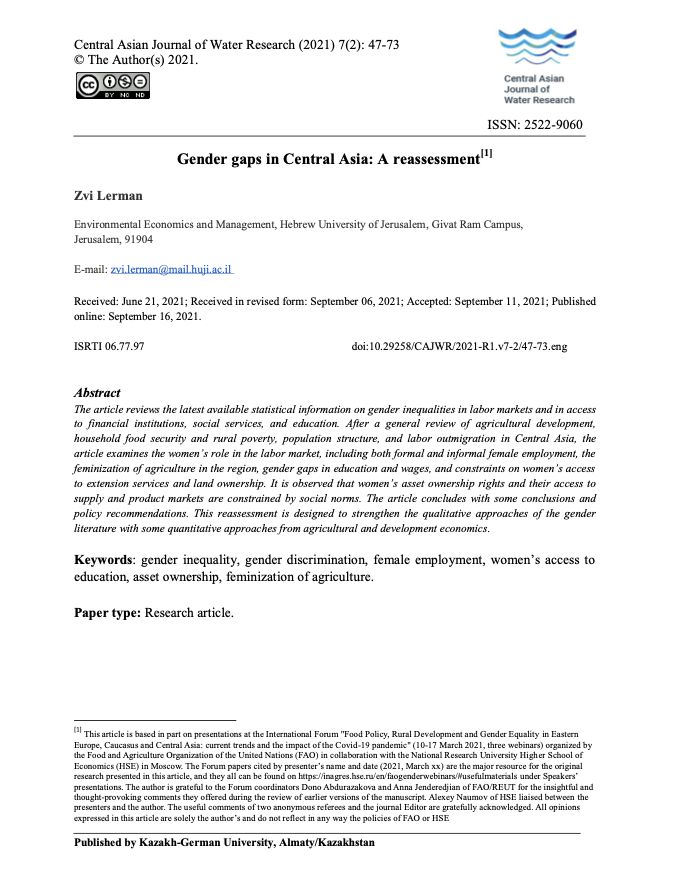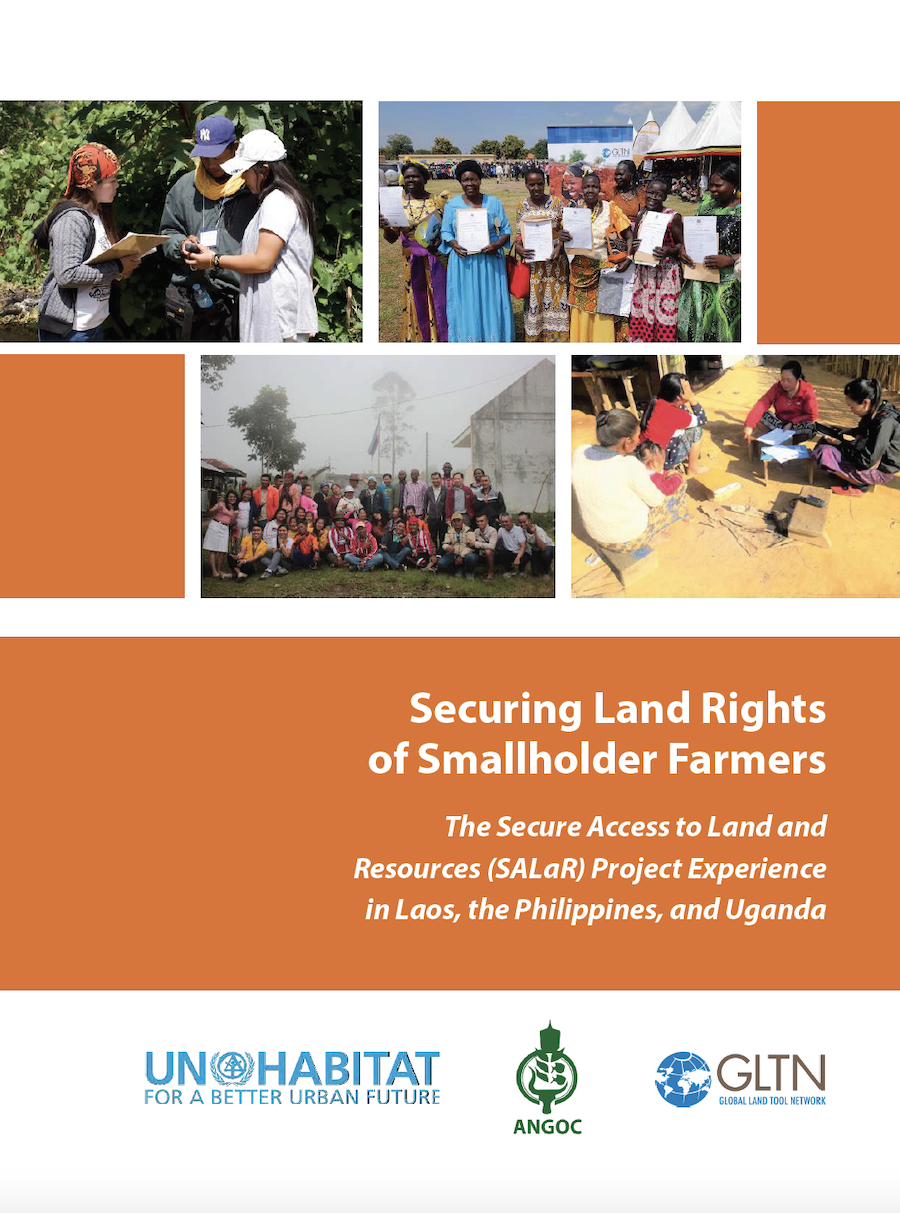Gender gaps in Central Asia: A reassessment
The article reviews the latest available statistical information on gender inequalities in labor markets and in access to financial institutions, social services, and education.
Securing Land Rights of Smallholder Farmers
This report summarizes the background, achievements and emerging outcomes of the Securing Access to Land and Resources (SALaR) project implemented towards improving land and natural resources tenure security for rural poor smallholder farmers, including women, men, youth and vulnerable groups in Uganda, Philippines and Laos.
Routes to change: rural women’s voices in land;climate and market governance in sub-Saharan Africa
A report by Global Agriculture examines the agricultural impact of multinational land deals (aka ‘land grabbing’) which are found to be directly harmful to local food security and livelihoods. It describes the phenomena as when: “These international investors;as well as the public;semi-public or private sellers;often operate in legal grey areas and in a no man’s land between traditional land rights and modern forms of property.
Law, Property and Disasters
This book re-considers property law for a future of environmental disruption.
What are the Effects of Large-Scale Land Acquisitions in Africa on Selected Economic and Social Indicators?
Explores what the Prindex 2020 dataset tells us about land rights in sub-Saharan Africa. One in four people in Africa live with the fear of being evicted day-to-day: one of the highest rates in the world. Across 34 countries surveyed in sub-Saharan Africa;a staggering 121 million people said they felt insecure. Compared to other regions of the world;people in sub-Saharan Africa place far less weight on legal documentation when considering how secure they feel in their rights.
Identification of Property Boundaries Using an IFC-Based Cadastral Database
Property boundaries have a significant importance in cadaster as they define the legal extent of the ownership rights. Among 3D data models, Industry Foundation Class (IFC) provides the potential capabilities for modelling property boundaries in a 3D environment. In some jurisdictions, such as Victoria, Australia, some property boundaries are assigned to the faces of building elements which are modelled as solids in IFC. In order to retrieve these property boundaries, boundary identification analysis should be performed, and faces of building elements should be extracted.
The Amazon Forest Preservation by Clarifying Property Rights and Potential Conflicts: How Experiments Using Fit-for-Purpose Can Help
The burning and the deforestation of the Brazilian Amazon forest, which has been recently highlighted by the international press and occurs mostly on public or undesignated land, calls for an in-depth examination. This has traditionally been the main way to grab land, speculate, and simultaneously prove ownership by its occupation. The absence of mapping, registration, and an effective regulation of land property in Brazil, particularly in the Amazon, plays an important role in its deforestation.
Understanding support for regulatory approaches to wildfire management and performance of property mitigations on private lands
Formal regulation of private property and exploration of “risk transmission” across ownerships are two popular means for addressing wildfire management at landscape scales. However, existing studies also indicate that a number of barriers exist for implementing formal regulations surrounding wildfire risk, and that few efforts gauge influences on the resident support that serves as an important antecedent to implementation.
CHALLENGING INSTITUTIONAL FRAMEWORKS IN LAND ADMINISTRATION: Many institutions, but less property rights (Case of Burundi)
Land administration as one of the mechanisms of availing property rights to owners cannot be achieved unless there are well-functioning and coordinated institutional frameworks. This paper explored the challenges emanating from the existing institutional frameworks dealing with land administration in providing property right in Burundi. A mixed research design has been applied to capture qualitative and quantitative data. A desk review of different government reports, academic papers and books have been consulted.
Land Tenure Systems’ Assessment Evaluation: Case Study Of Cote D’Ivoire
In Cote d’Ivoire, as in many African countries, social tensions are frequently linked to a crisis of the rule of property law. These socio-legal conflicts are referred to by various names depending on their subject matter or the time and place in which they arise: law crises, the weakness of the State apparatus, the unsuitability and failure of institutions, and so on. However, in the majority of cases, these conflicts stem from a common phenomenon: weak land tenure security, or more precisely, land insecurity.
Over Promising While Under Delivering: Implementation Of Kenya’S Community Land Act
Kenya’s constitution of 2010 provides for recognition, protection, and registration of community land. This is significant because it recognizes customary tenure after decades of historical bias towards private property and brings to the fore the uniqueness of the African commons. We revisit the debate on managing communal land by reviewing the process of implementation of the Community Land. The paper is based on a review of the legal framework, discussions on the implementation of the Community Land Act and authors interaction with communities through workshops.








